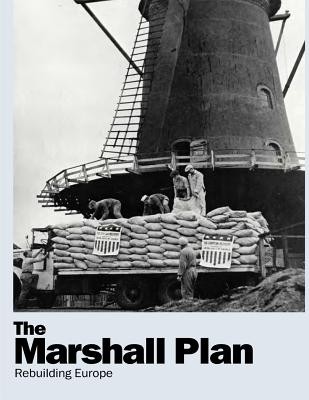
- We will send in 10–14 business days.
- Author: United States Government
- Publisher: CreateSpace Independent Publishing Platform
- Year: 2015
- Pages: 26
- ISBN-10: 1508844860
- ISBN-13: 9781508844860
- Format: 21.6 x 28 x 0.1 cm, minkšti viršeliai
- Language: English
- SAVE -10% with code: EXTRA
Reviews
Description
On June 5, 1947, speaking to the graduating class at Harvard University, Secretary of State George C. Marshall laid the foundation, in the aftermath of World War II, for a U.S. program of assistance to the countries of Europe. At a time when great cities lay in ruins and national economies were devastated, Marshall called on America to "do whatever it is able to do to assist in the return of normal economic health in the world, without which there can be no political stability and no assured peace." The U.S. Congress approved Marshall's long-sighted proposal in 1948, and by 1952 the United States had channeled some $13 billion in economic aid and technical assistance to 16 European countries. During the program's four years, participating countries saw their aggregate gross national product rise more than 30 percent and industrial production increase by 40 percent over prewar levels. But the Marshall Plan, as it came to be known, was not just an American program. It was a joint European-American venture, one in which American resources were complemented with local resources, one in which the participants worked cooperatively toward the common goals of freedom and prosperity. Many have been generous in their praise of the Marshall Plan, but perhaps none more than Sir Winston Churchill, to whom it represented "the most unsordid act in history."
- Author: United States Government
- Publisher: CreateSpace Independent Publishing Platform
- Year: 2015
- Pages: 26
- ISBN-10: 1508844860
- ISBN-13: 9781508844860
- Format: 21.6 x 28 x 0.1 cm, minkšti viršeliai
- Language: English English
On June 5, 1947, speaking to the graduating class at Harvard University, Secretary of State George C. Marshall laid the foundation, in the aftermath of World War II, for a U.S. program of assistance to the countries of Europe. At a time when great cities lay in ruins and national economies were devastated, Marshall called on America to "do whatever it is able to do to assist in the return of normal economic health in the world, without which there can be no political stability and no assured peace." The U.S. Congress approved Marshall's long-sighted proposal in 1948, and by 1952 the United States had channeled some $13 billion in economic aid and technical assistance to 16 European countries. During the program's four years, participating countries saw their aggregate gross national product rise more than 30 percent and industrial production increase by 40 percent over prewar levels. But the Marshall Plan, as it came to be known, was not just an American program. It was a joint European-American venture, one in which American resources were complemented with local resources, one in which the participants worked cooperatively toward the common goals of freedom and prosperity. Many have been generous in their praise of the Marshall Plan, but perhaps none more than Sir Winston Churchill, to whom it represented "the most unsordid act in history."


Reviews